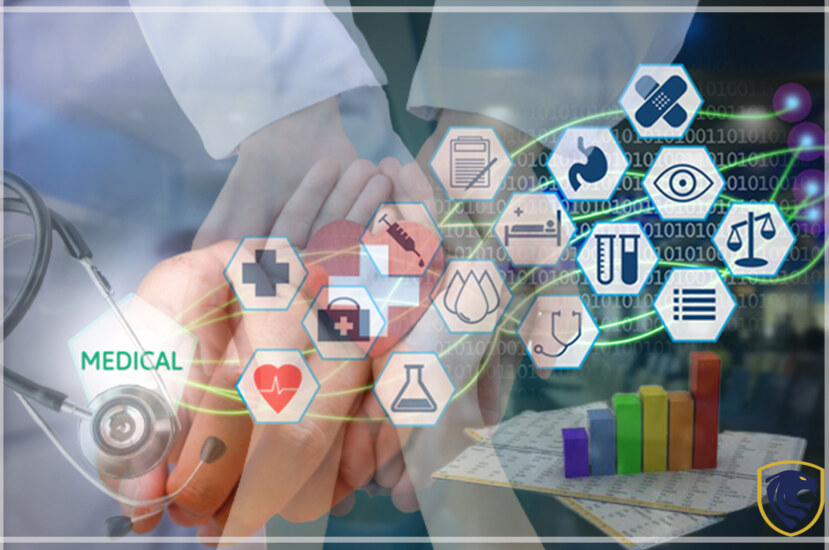Big Data in the healthcare field has been steadily gaining traction, and it shows no sign of slowing down. Organizations are looking to find new ways to analyze their data to better understand patients’ needs. As well as reduce medical errors, and cut costs. But Big Data is still a relatively new concept. Therefore many organizations are unfamiliar with how it works and how they can best utilize this emerging trend.
Do you want to learn more about Big Data in Healthcare or about what these organizations are doing with their data? Our article is full of amazing information that will take you through the basics. It highlights some of the major challenges organizations face. This is when dealing with Big Data and then provides a list of 4 ways Healthcare organizations are using Big Data.
This article will cover how Big Data is being used in healthcare and some of the most common issues that organizations face when incorporating this method into their plans. We will also look at how these challenges can be resolved by incorporating a data analysis tool like OBIEE. We will then give a brief explanation of how Big Data works and some of the benefits for healthcare organizations.

What Is The Role Of Big Data In Healthcare?
Big data can be defined as high volume, high velocity, and a wide variety of data. That is created by consumers, devices, systems, and businesses. Because of the ever-increasing amount of available information in the world. Today, healthcare organizations are starting to look at this data in new ways. In order to figure out how they can make their organization better positioned to treat patients. And learn more about what drives health outcomes. These organizations are using analytics software like OBIEE. This allows them to take advantage of all the valuable information they have available while also solving some of their most pressing issues.
Data Analysis in Healthcare
Big Data is a relatively new concept, and while it’s something that has been around for several years now, many organizations are still unfamiliar with it. Some of these challenges that may exist within organizations include:
- Lack of budget – Healthcare organizations may not have the budget to dedicate large sums of cash towards new technologies. This means that they can often not gain access to the kinds of software used for Big Data analysis.
- Lack of knowledge about Big Data – Big Data is a relatively new field. Therefore there have been many questions about how it works, how it can be utilized, and so on. Organizations that are unfamiliar with Big Data may not have a clear understanding of how it works. Ad how to implement it, or how they can make the most of it.

healthcare
- Lack of knowledge about data analysis tools – This is another challenge that organizations face when trying to utilize Big Data. That is trying to find software that will help them analyze their data in the best way possible.
- Complexity – When looking at a vast amount of information, many organizations are finding that their data is very complex. In order for a person or software program to look through all of this information and find anything useful, it can take weeks or even months.
How Are Healthcare Organizations Using Big Data?
1) Recording of patient information – One of the first places that organizations use Big Data is in order to record patient data that would normally be unavailable to them. They can then use this information to find patterns and trends within their patients, which can help them come up with treatments that may not have been found by using traditional methods.
Examples:
- Patient history – This information is used for diagnosis and treatment plans. Important things such as your allergies, current illnesses, past surgeries, allergies, or even family members should all be considered when choosing a treatment plan.
- Social network – Patients can now enable their care providers to access the information in their social network. This allows for the discovery of more information about their illnesses and treatments.
- Electronic health record (EHR) – This becomes a valuable resource for doctors and nurses when patients have an EHR. It allows them to understand the history of their illness better, look for patterns, and compare it to current symptoms. In order to fully analyze all of this data, Big Data is being used by healthcare organizations.
2) Diagnosis – Big Data is also being used on diagnosis to give doctors more certainty about how they should treat their patients.

healthcare
Examples:
- Prescriptions – Based on a doctor’s information, they can use this information to develop more effective prescriptions.
- Medical imaging – Doctors receive, a vast amount of medical scans and X-rays. That this is one of the most common ways Big Data is utilized. By using software such as OBIEE, doctors are able to access their patients’ images, compare them with previous images, and look for any important changes.
3) Patient-specific treatment plans. -Using Big Data in the form of EHRs, patient records, and even social networks, is important. That helps healthcare organizations to gain a deeper understanding of their patient’s specific needs. This information is then used in the form of personalized treatment programs based on each patient’s individual needs. That is a very powerful way to treat patients.
4) Disease prevention and wellness. – Because healthcare organizations can access so much data about their patients, this allows them to develop programs that are based on the specific risks and lifestyles of each patient. They can then use this information to create preventative care programs. They may help to lower the chances of a person getting sick or even keep them healthy for longer periods.

healthcare
Examples:
- Use Big Data from clinical trials. – This information allows healthcare organizations to locate patients who were previously treated for specific illnesses. And find out their long-term outcome for the disease. This helps to create more accurate statistical information for the disease and its patients.
- Compare the effectiveness of treatment plans. – By looking at the data of patients who have been treated with different treatments, a healthcare organization will be able to find which treatment is far more effective or beneficial.
- Evaluation of medical devices. – Some medical devices are so complex that they can be used in many ways. With software like OBIEE, physicians and healthcare organizations will better evaluate how a device should be used to get the most out of it.
Big Data in healthcare aims to help doctors and patients get the best results and care possible. By using Big Data, healthcare organizations can predict more accurately the future of their patients. That helps to find better treatment programs, and help lower the costs of treatments that don’t provide as good of results.
watch video to learn more
[embedyt] https://www.youtube.com/watch?v=GcCAuEcE7pY%5B/embedyt%5D




